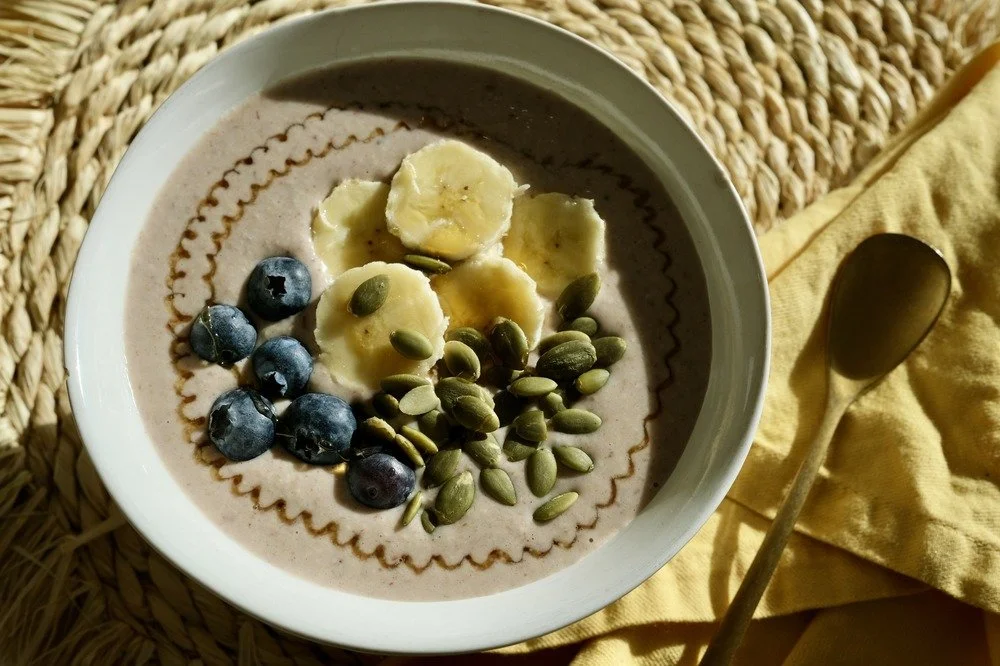How to Increase Estrobolome: Supporting Your Gut-Hormone Connection
From powering the immune system to playing a key role in mental health, the gut proves time and time again to be at the center of our wellbeing — and our hormones are no different.
Our gut is home to the estrobolome, a unique collection of gut bacteria critical for maintaining balanced estrogen levels. But how do we know when it’s not doing its job? And what can we do to improve it?
In this guide, we’ll explore the basics behind the gut-hormone connection, why it’s so important, and how to support your estrobolome.
What is the Estrobolome?
The estrobolome is a collection of bacteria in the microbiota that produces beta-glucuronidase, an enzyme that regulates the circulation of estrogen. When healthy, it metabolizes estrogen and removes it from the body — but an unhealthy estrobolome can cause the hormone to be reabsorbed back into the body, leading to an estrogen dominance.
Graphic by Lakeside Natural Medicine
Symptoms of Estrogen Dominance
If estrogen cannot properly be removed from your system, you may experience:
Heavy, painful, or irregular periods
Breast tenderness or fibrocystic breasts
Mood swings, anxiety, or depression
Persistent fatigue or brain fog
Hormonal acne or skin breakouts
Weight gain, especially around the hips and thighs
Headaches or migraines
All of these might be signs that your estrobolome is in need of additional support.
Natural Strategies to Support and Increase Your Estrobolome
1. Optimize Your Diet
A gut-friendly diet is foundational for estrobolome health. Prioritize the following:
Fiber-rich foods: Crucial for estrogen elimination. Include oats, barley, quinoa, garlic, onions, asparagus, artichokes, apples, and berries.
Phytoestrogens: Plant-based compounds that gently modulate estrogen levels. Incorporate flaxseeds, chickpeas, lentils, fermented soy products like miso, tempeh, and tofu.
Healthy fats: Essential for hormone synthesis. Eat omega-3 rich foods such as wild salmon, chia seeds, walnuts, hemp seeds, and avocados.
Cruciferous vegetables: Support estrogen detoxification pathways. Broccoli, kale, Brussels sprouts, and cauliflower are excellent choices.
Conversely, reduce or eliminate processed foods, refined sugars, alcohol, and excessive caffeine, all of which disrupt gut flora and hormone balance.
2. Prioritize Probiotics and Prebiotics
A healthy microbiome is reliant on probiotics and prebiotics to support the trillions of beneficial gut bacteria that make it function.
Probiotics replenish and support beneficial gut bacteria: Kefir, kimchi, sauerkraut, unsweetened yogurt, kombucha, and tempeh.
Prebiotics feed your beneficial gut bacteria: Garlic, onions, leeks, bananas, asparagus, chicory root, dandelion greens, and whole grains.
3. Limit Antibiotic Exposure
While antibiotics are sometimes necessary, they can severely disrupt gut flora balance. According to a study done by the University of Copenhagen, the makeup of a healthy person’s gut bacteria can remain impacted over six months after using antibiotics. To protect your estrobolome:
Use antibiotics judiciously and only when medically necessary.
Actively restore gut flora post-treatment with probiotics and prebiotic-rich foods.
4. Minimize Xenoestrogen Exposure
Xenoestrogens are synthetic chemicals that can be absorbed into the body through plastic containers (bottles and Tupperware), makeup, fragrances, candles, and pesticides. Once inside, they mimic estrogen, binding to receptors and disrupting your hormonal processes.
Select natural, organic skincare and cosmetic products.
Eat organic produce to limit pesticide exposure.
Filter your drinking water to reduce chemical contaminants.
Use glass storage containers for leftovers and meal prep
5. Implement Stress Management Techniques
There’s a reason why your stomach can feel uneasy during anxious moments — the gut-brain connection goes both ways. Chronic stress goes beyond your mental health, impacting your digestive and hormonal systems as well. Regularly practice stress-reducing activities:
Yoga, meditation, mindfulness, breathwork, or gentle stretching.
Regular moderate exercise, such as walking, swimming, cycling, or strength training.
Prioritize quality sleep by maintaining a consistent sleep schedule and creating a restful environment.
6. Consider Targeted Supplements
Under professional guidance, certain supplements can enhance your estrobolome:
DIM (Diindolylmethane): Found naturally in cruciferous vegetables; supports estrogen detoxification.
Calcium D-Glucarate: Helps eliminate excess estrogen.
Magnesium: Reduces stress and inflammation, supports gut health, and promotes hormonal balance.
Vitamin D: Crucial for immune and hormonal regulation.
Always consult a healthcare professional before beginning supplementation to ensure appropriate usage.
Special Considerations Across Life Stages
Just as our hormones fluctuate over the course of our lives, so might our strategies for supporting the health of our estrobolome. Tailoring your approach to your life situation can help you maximize your efforts.
Coming Off Hormonal Birth Control:
Transitioning off birth control can lead to hormonal imbalances as your body relearns how to regulate its natural cycles. A healthy estrobolome can help ease this shift. Support this phase by:
Eating cruciferous vegetables to support estrogen clearance
Adding fermented and fiber-rich foods to help reestablish microbial diversity
Focusing on liver support nutrients, including leafy greens, beets, and dandelion tea
Supplementing with magnesium, B-complex vitamins, and adaptogens to reduce stress and encourage hormonal resilience
Bonus: Check out my eBook on The Effects of Birth Control — & How to Transition Off It, which includes a 6-week meal plan full of hormone-healing recipes.
Perimenopause & Menopause:
During this time, estrogen levels naturally decline, but gut health still plays a vital role in maintaining hormonal balance and minimizing symptoms like hot flashes, mood swings, and fatigue. Prioritize:
Phytoestrogens like flaxseeds, fermented soy, and legumes
Probiotics and prebiotics to maintain microbiome diversity
Magnesium and calcium for bone health and stress support
Daily movement and weight-bearing exercise to support metabolism
Postpartum Recovery:
Hormone levels shift dramatically after birth, and gut health plays a key role in regulating mood, restoring energy, and supporting lactation. Focus on:
Nutrient-dense, warming meals with healthy fats and cooked vegetables
Fermented foods and broths to rebuild gut lining
Iron, omega-3s, and B vitamins to replenish depleted stores
Daily hydration and rest to aid recovery
PCOS Management:
For those managing PCOS, supporting the estrobolome is essential for reducing estrogen dominance and improving insulin sensitivity. Incorporate:
A low-glycemic, fiber-rich diet to support steady blood sugar and hormone detox
Cruciferous vegetables for liver and estrogen metabolism
Regular exercise and stress-reducing practices like breathwork or walking
Supplements such as inositol, magnesium, or DIM (if approved by a practitioner)
Want More Help Understanding the Gut-Hormone Connection?
Improving your estrobolome is a holistic journey — it's not just about diet or supplements alone but embracing a comprehensive, sustainable approach to nutrition, lifestyle, and environmental awareness.
If you’re ready to begin improving your gut-hormone connection, reach out today for a free 20-minute consultation to discuss how my Hormonal Balancing Program can improve your overall wellbeing over the course of three months.























